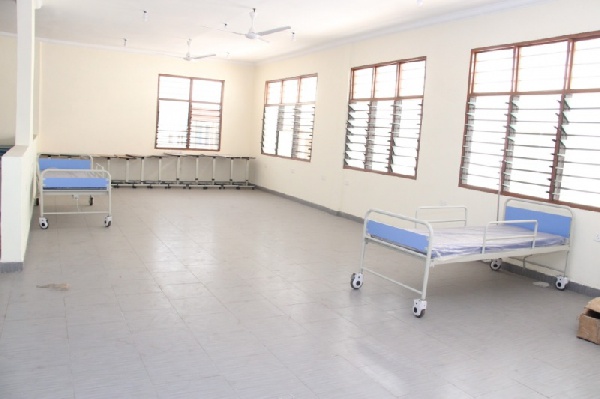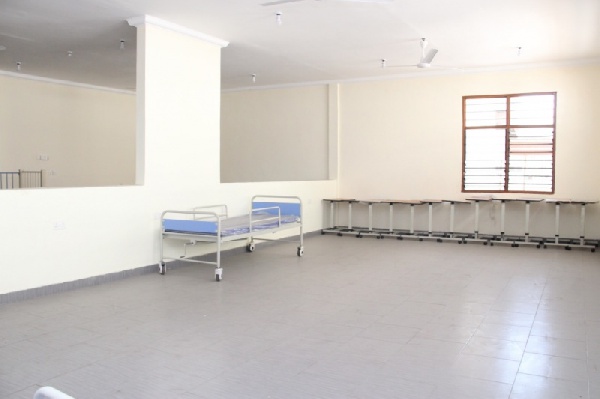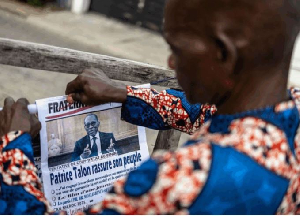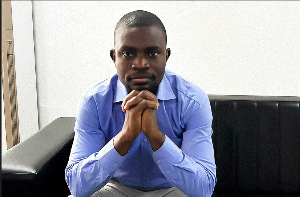Health News of Thursday, 17 January 2019
Source: classfmonline.com
Heritage Bank's Seidu Agongo gifts Korle-Bu 30-bed block for children's emergency unit
The majority shareholder of the now-defunct Heritage Bank, Alhaji Seidu Agongo, has gifted the Child Emergency Unit of the Korle-Bu Teaching Hospital, a brand new 30-bed block, which he built at a cost of GHS857,000.
The philanthropist started putting up the unit in 2017 and completed it in December 2018.
Alhaji Agongo was recently declared by the Governor of the Bank of Ghana, Dr Ernest Addison, as “not fit and proper” to own a bank in Ghana, since, according to the regulator, he was being prosecuted by the state in the GHS271 million Ghana Cocoa Board (COCOBOD) fertiliser scandal involving former COCOBOD CEO Dr Stephen Opuni.
Dr Addison also announced on 4 January 2019 at a press conference that the central bank had decided to revoke the licence of Heritage Bank, founded by Mr Agongo, on the grounds of alleged criminality in the COCOBOD case, even though the matter was pending before the High Court.
Explaining his motivation for putting up the ultra-modern unit for the hospital, Mr Agongo said in an interview that: “I can’t stand watching innocent, helpless babies, toddlers and children go through so much suffering in the very fragile stages of their journey into this world. They didn’t ask to be brought into this world. We, as adults, brought them into this world without their consent, and, so, we must try and do everything possible to make sure their entry is without pain and suffering”.
He added that: “As somebody who came from a very poor family and tasted poverty and hardship at a very young age, I know how it feels for helpless children and babies to go through suffering and so much pain just because there aren’t enough facilities and space to cater for their health needs and well-being, thus, my decision to step in and help in the little way I could”.
For his part, the Head of the Child Health Department at the Korle-Bu Teaching Hospital, Prof Ebenezer Badoe, said the donation of the block would double the unit’s capacity in handling emergency cases involving children while dealing with congestion.
In his view, not much attention is paid to child healthcare in the country. He lamented that the Out-Patients Department (OPD) of the Child Emergency Unit operates within a 22-bed capacity space, in spite of the average 30 to 50 cases it handles daily.
“This is because children do not come first,” he bemoaned.
“Maybe because you have not brought a child here, but if you have brought a child here, that is when you come face-to-face with reality,” he said to journalists during a tour of the block.
Prof Badoe noted that unlike other countries where the healthcare of children was a top priority, it “hurts” him so much that the government of Ghana does not put children first as far as investment in the health sector is concerned.
“When you think about it that we are now getting space for an emergency unit after all these years of Korle-Bu, are you not worried?” he quizzed.

Prof Badoe, thus, advised the government to put “children first”, adding: “That is your investment. With 20 years to 25 years, they are in the productive group but they need to be healthy to be able to come into that group”.
Per his estimation, Ghana loses a large number of newborn babies to “diseases of antiquity” as a result of the country’s failure to invest in their health and education.
He mentioned rabies, respiratory infections, jaundice and malaria as some of the top killer diseases that are preventable, yet destroy the lives of Ghanaian children daily.
According to him, apart from the lack of facilities and trained health staff, the problem is compounded by the lack of education on how to improve child healthcare as well as a general disinterest in the health of the Ghanaian child.

He said it was worrying that about 60 per cent of children in the country are iron-deficient and, so, called for deliberate efforts to boost their iron levels for their immune system to be strengthened.
Prof Badoe said although Ghana’s infant mortality rate had declined to 25 deaths in every 1,000 births, the figure was still a blot on the country’s health sector.
“Take, for example, maternity. There was a month that 17 people died, but if you are in England, you may get only one or two deaths in a year.
“So, when you compare, then you realise that there is something wrong with your system,” he lamented.
Prof. Badoe said although he has been confronted with all manner of diseases in children, “seeing things like rabies hurts me.”
“Rabies is like a disease of antiquity. In the western world, the whole of Europe, not a single case of rabies is recorded, but here, occasionally, a child will come and die of rabies.
“That one, when I see it, it hurts me because it is preventable,” he said.
This, he said was a factor of lack of education and thus called on parents to vaccinate their dogs and children appropriately to avoid needless deaths.












